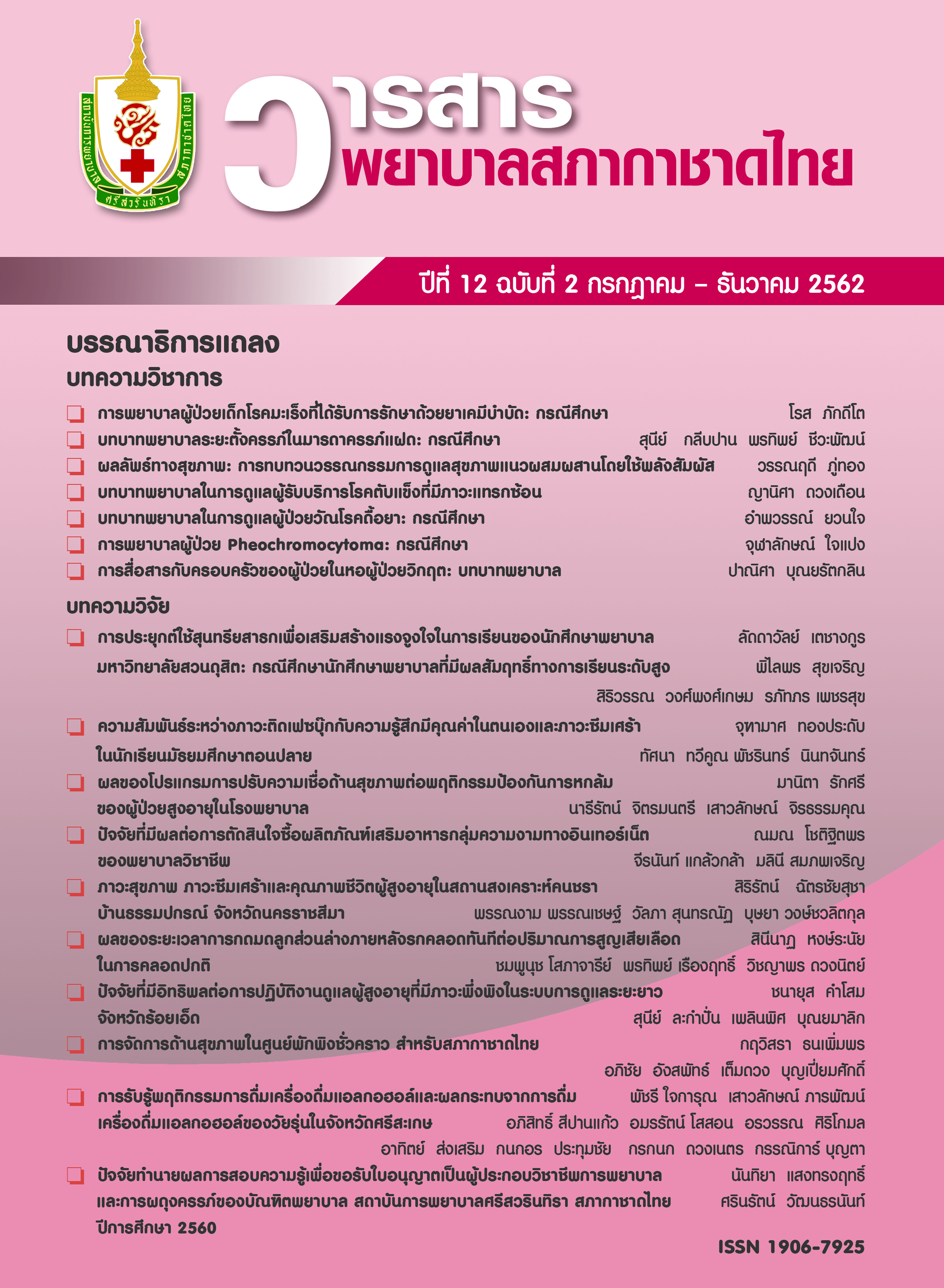Antepartum Nursing Role of Multiple Pregnancies: A Case Study
Keywords:
multiple gestation, antepartum nursing care, nursing roleAbstract
Multiple gestation is a high-risk pregnancy. The impact of multiple gestation affects both mother and foetus whether it be common complications such as abortion, preterm labour and twin-twin transfusion syndrome (TTTS). It is also a major cause behind increasing perinatal morbidity and affects the family especially in terms of the psychological problems of the family. Pregnant women and the family experience anxiety about their foetal health and long hospital stay, therefore nurses play an important role in caring about the physical and psychological well-being of pregnant women and the family. The important roles of nursing in pregnant women who’ve had multiple gestation are as follows: 1) direct care provider using the nursing process by assessment risk factors, symptoms and complications, will contribute to the planning and nursing; 2) educator by providing information to behave appropriately; and 3) counselor on health and psychological aspects – these are important in preventing complications and the risk surveillance of mother and foetus. In addition, the effects of psychological problems in pregnant women and the family are reduced.
References
2. Martin JA, Hamilton BE, Osterman MJK, Driscoll AK, Drake P. Births: Final Data for 2017. Nat Vital Stat Rep 2018;67(8):1-50.
3. Medical Registration and Statistics Department. Multiple pregnancy statistical report Bangkok: King Chulalongkorn Memorial Hospital: 2016-2017. (In Thai)
4. Bush MC, Pernoll ML. Multiple gestations. In: DeCherney AH, Nathan L, Laufer N. Roman AS, editors. Current diagnosis & treatment: obstetrics & gynecology. 11th ed. New York: McGraw Hill medical; 2013. p. 301-9
5. Falletta L. Fischbein R. Bhamidipalli SS, Nicholas L. Depression, anxiety, and mental health service experiences of women with a twin-twin transfusion syndrome pregnancy. Arch Womens Ment Health 2018;21(1):75-83.
6. Kor-anantakul O. Multitetal gestations. In: Kor-anantakul O, editor. High risk pregnancy. 2 nd ed. Songkla: Faculty of Medicine Prince of Songkla University; 2008. p. 291-351 (In Thai).
7. Newman R. Unal ER. Multiple gestations. In: Gabbe SG, Niebyl JR, Simpsin JL, Landon MB, Galan HL, Jauniaux ERM, Driscoll DA, editors. Obstetrics: normal and problem pregnancies. 6th ed. Philadelphia: Elsevier/Saunders; 2012; p. 673-705.
8. Thailand Nursing and Midwifery Council. Competencies of registered nurses. 2nd ed. Nonthaburi; 2013. P. 1-50. (In Thai).
9. Visintin C, Mugglestone MA, James D, Kilby MD. Antenatal care for twin and triplet pregnancies: summary of NICE guidance. BMJ 2011;343:d5714. doi: 10.1136/bmj.d5714.
10 Kilby MD, Bricker L. Management of monochorionic twin pregnancy. BJOG 2016;124:e1-e45.
11. American College of Obstetricians and Gyneciligists’ Committee on Practice Bulletins – Obstetrics. Practice Bulletin No. 171: Management of preterm labor. Obstet Gynecol 2016;128(4):e155-64.
Downloads
Published
Issue
Section
License
เนื้อหาบทความหรือข้อคิดเห็นต่างๆ ในวารสารพยาบาลสภากาชาดไทยนี้ เป็นความคิดเห็นของผู้เขียนบทความ ไม่ใช่ความเห็นของกองบรรณาธิการ หรือสถาบันการพยาบาลศรีสวรินทิรา สภากาชาดไทย






